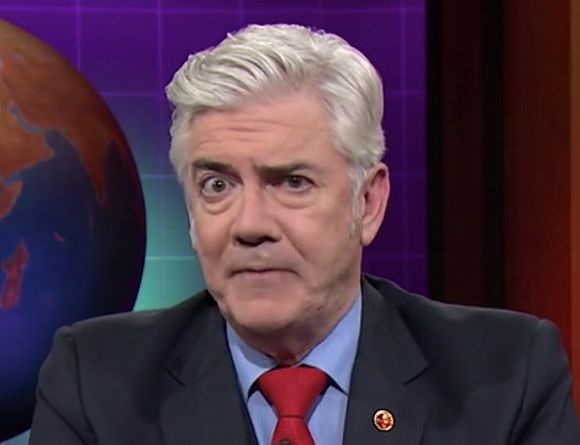The Government keeps cutting funding to the ABC, but recent events such as the bushfire disaster have shown why our national broadcaster is so vital, writes Kelly Bartholomeusz.
WHAT IF there was no ABC? This question was posed to bushfire survivors during independent research into the 2019-20 summer fire response. “It would be a strategic nightmare — we would lack the most important information to help us in a time of need,” said a survivor from Narooma. This question takes on an ominous significance as the Coalition Government makes further funding cuts to the ABC, this year’s Federal Budget revealing the latest in over two decades of cuts that reached crisis point under Tony Abbott in 2014.
The last ten months have been a sobering reminder of the role played by the ABC during times of crisis. During the peak of the 2019-20 bushfires alone, the ABC undertook emergency broadcasting for over 200 emergency events across Australia, which cost an extra $3 million to the broadcaster’s expenses at the same time it was being forced to absorb an annual budget cut of $105.9 million.
In September, Chair Ita Buttrose sent an email to staff requesting the six-month deferral of a scheduled wage increase in order to fund ‘emergency broadcasting services and public interest journalism’. This follows news of approximately 250 redundancies as the ABC scrambles to fund the news and entertainment on which millions of Australians rely.
There is a tendency of Liberal politicians to dismiss the ABC as a bloated public service and funding cuts as nothing more than a routine efficiency exercise. In reality, the ABC and SBS currently cost the Government $57 per person, per year — about a third of what Scandinavians and Germans spend on public broadcasting and about half of what the Brits spend.
The ABC’s funding has declined in real terms by close to 30 per cent over the last 35 years. The 2019 efficiency review of the ABC, led by former News Corp executive Peter Tonagh, recommended that the broadcaster receive longer-term funding certainty to allow it to modernise its infrastructure — expert advice that appears to have been discarded by those that commissioned it.
It should be of concern to every Australian that public interest journalism and emergency broadcasts are being financed through layoffs and wage freezes. In the context of economic turmoil, one could be forgiven for perceiving these measures as purely pragmatic. But it is worth noting that the Government recently awarded Foxtel a $10 million extension to its existing $30 million contract — a new “no-tender” contract that was fast-tracked through Federal Cabinet during May 2020, bypassing procedures intended to improve governance.
This illustrates not a financial crisis but a crisis of values, a willingness to let the country’s public broadcaster scavenge for scraps while awarding millions to a subscription-only cable service without due process.
These cuts are not about acting on credible advice but about the furthering of an agenda. The Institute of Public Affairs (IPA), a Right-wing think tank that receives significant funding from Gina Rinehart and shares several members with the Liberal Party – Scott Morrison, Josh Frydenberg, Mathias Cormann, Michaelia Cash, among others – has made its agenda clear.
In a 2019 policy document, the IPA outlines several of its aims, including to abolish the Fair Work Act, repeal Section 18C of the Racial Discrimination Act and withdraw from the Paris Climate Agreement.
The document also advocates unambiguously for a full privatisation of the ABC, stating:
‘In a free society, the Government should not own and operate its own media company.’
The ABC, a taxpayer-funded independent broadcaster, is neither owned nor operated by the Government. But the IPA seems uninterested in letting facts hinder the pursuit of its objectives, many of which appear to be shared by the Liberal Party. In 2018, the party’s Federal Council voted 2:1 to privatise the ABC, a move that is at odds with the values and priorities of Australians, including those of their own voters: research commissioned by the Australia Institute in 2018 revealed a high level of trust in the ABC by voters across all parties including the LNP, ALP, the Greens and One Nation.
More recently, a 2020 Roy Morgan survey showed that 76 per cent of Australians oppose any further cuts to the ABC’s budget. While voter sentiment is clear, the Coalition Government appears undeterred.
The continued defunding of the ABC is a death by a thousand cuts: covert enough to be overlooked amidst the greater turmoil of 2020 and bureaucratic enough to be rendered opaque to most Australians. But countless stories from bushfire survivors, regional Australians, new migrants and young parents speak to an important truth — that the ABC must be safeguarded against vested interests for the wellbeing of Australians everywhere.
If there are efficiencies to be found, they will not be found at the bottom of an empty well. The only thing down there will be the skeleton of a once-formidable public broadcaster, ready for a final dismantling when the political climate allows.
Kelly Bartholomeusz is a writer and community development worker. She is a volunteer with ABC Friends, an independent community interest and advocacy organisation.
Related Articles
- A clear picture of how the ABC fared in the current Federal Budget
- EXCLUSIVE: ABC staff asked for ID in 'secret' pay-freeze ballot
- ABC News needs to find a new way to chase ratings
- The ABC and SBS are vital but can be strengthened
- EXCLUSIVE: ABC allegedly 'endangers life' of employee in Kenya
 This work is licensed under a Creative Commons Attribution-NonCommercial-NoDerivs 3.0 Australia License
This work is licensed under a Creative Commons Attribution-NonCommercial-NoDerivs 3.0 Australia License
Support independent journalism Subscribe to IA.













